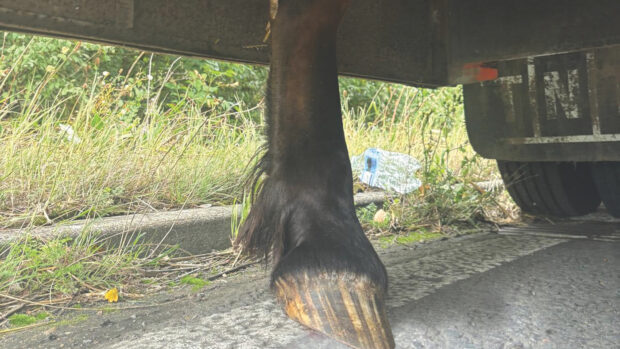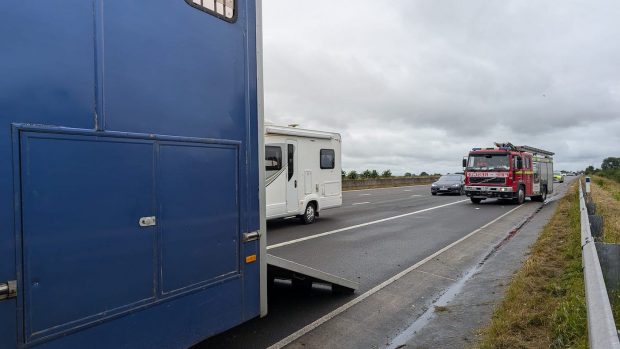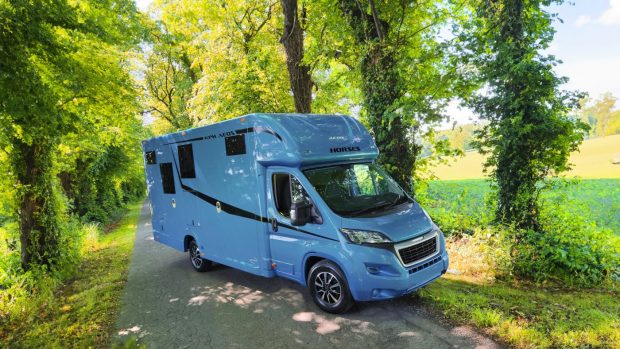Even if you only travel short distances with your horse, it is crucial that you are prepared in case of an accident.
Devon & Somerset Fire & Rescue Service’s (DSFRS) specialist animal rescue team give their advice on what to do in an emergency.
DSFRS recommends that you:
- Always carry a fully charged mobile phone with you — even on short journeys. Make sure you carry the emergency helpline number for your breakdown/recovery company, vet and insurance company.
- Ensure no one is tempted to enter a restricted space such as a horsebox to assist a horse. It will stress the horse further and this can easily lead to injury of both horse and person.
- Do not be tempted to open up doors and ramps; this invites a stressed horse to strive for that perceived escape route and will usually make the situation much worse.
- Try to stay calm yourself. If you remain calm take and speak in an unstressed and steady tone of voice it will help to give reassurance to your horse and help you to think more clearly.
- Summon the Fire and Rescue Service immediately asking for their animal rescue team if they have one. Describe thoroughly the situation and your exact location.
- Summon a horse vet either your own, or if you are away from home, inform the Fire Control operator; they will be able to contact an equestrian vet through the BEVAs directory of vets willing to attend emergencies
- Try to keep the scene as calm and quiet as possible. It is most likely that the Fire Service and vet will utilise heavy sedation or anaesthesia in order to rescue the horse as safely as possible. For these drugs to work effectively they require the horse to have the least possible amount of adrenaline present in its system.
- Have information prepared to pass to the animal rescue team leader.
This video is part of South West insurer Cornish Mutual’s “HorseSafe” campaign.
It is being run in partnership with the animal rescue team at DSFRS to improve the safety of horses during transport.
Read more about travelling with your horse




